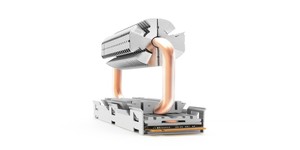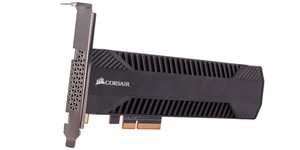What SSD should I buy?
Entry-level and mid-range systemsHonestly, while the cost of SSDs still far exceed HDDs on a cost per GB basis, we do think it's reached the point where there's no excuse for not having an SSD in any new build, even a low budget one. The significantly faster experience SSDs enable is worth paying for, even if just for an OS drive. Still, entry-level and mid-range systems don't need PCI-E storage – a standard SATA 2.5in one will do just fine.
Gaming systems
Even high-end gaming systems we'd say are still best suited to standard 2.5in SATA SSDs, although you might consider getting a 512GB or even a 1TB one given the size of modern game installs. You'll get a much bigger advantage from spending extra cash on upgrading your GPU(s) than you will from choosing a PCI-E SSD.
Workstations
Here is where PCI-E SSDs start to make sense. Media professionals and those with heavy storage workloads will appreciate the extra bandwidth on offer. If you have an especially I/O intensive workload then an NVMe SSD would be a good choice, although your options here are currently very limited. Intel's SSD 750 Series is a fine choice for workstation builds, however.
Small form factor systems
M.2 drives are ideal for small form factor builds. If you're going mini-ITX or even micro-ATX, you can use an M.2 SSD to avoid having any drive bays at all. In many cases, this will leave you with extra room for water-cooling gear, and it's sure to pave the way for some epic mods too. If you're just looking to save space, an M.2 SATA SSD like the Samsung SSD 850 Evo M.2 or Crucial MX200 M.2 is a great choice, but for top performance you'll want a PCI-E one, and the Samsung SSD 950 Pro is the current top choice there.
For those who just have to have the best
You'll absolutely want an NVMe enabled PCI-E 3.0 x4 SSD. The Samsung SSD 950 Pro 512GB would be a fantastic choice, although if you need more storage than that you'll have to either wait for the 1TB version coming next year or opt for the Intel SSD 750 Series, which is available in 800GB and 1.2TB capacities.
Still got questions?
Let us know! If anything is still unclear or you feel we’ve missed anything important out then we'll be happy to clarify and update the article if necessary.
MSI MPG Velox 100R Chassis Review
October 14 2021 | 15:04









Want to comment? Please log in.